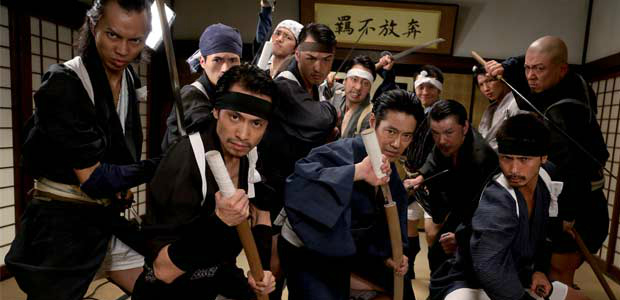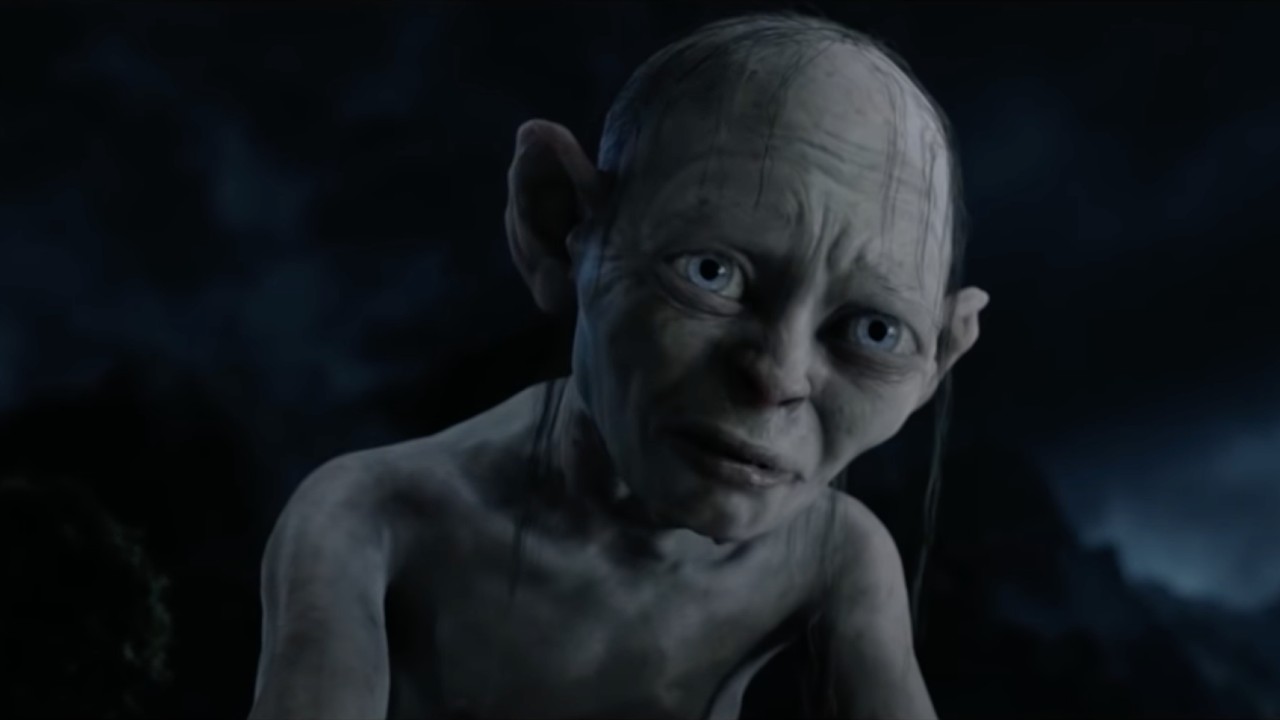Two things should tip you off to the type of movie Why Don’t You Play In Hell? delivers, long before a frame of film is shown. First, that title. You don’t saddle your picture with an attention-grabbing, eye-popping title unless you are ready to deliver the bloody, demented goods. Second, there’s the distributor. Drafthouse Films specializes in throwback genre films that have roots in the Saturday afternoon matinees of our childhoods – bringing uncompromising international flavors to American screens via projects like Four Lions, A Field in England, The FP and Borgman, to name just a few.
Why Don’t You Play In Hell? starts, abruptly, with a toothpaste commercial, which peddles a jingle that characters can’t help repeating as the movie plays out. There’s a reason. Sion Sono’s gory affair plays a catchy, chaotic commercial jingle, recycling familiar beats that burrow into your brain like an earworm, but ultimately adding up to more flash than substance. You might recall standalone scenes from Sono’s effort, the way you’d hum a few bars of a commercial jingle. But the movie itself proves too convoluted and self-serious (for a comedy) to stick to the ribs.
What Hell has in spades, though, is a manic energy that’s becoming the calling card of Sono’s filmography (which is now 31 films deep). His latest loosely follows a teenage filmmaking crew lovingly labeled as the Fuck Bombers, who’re led by Hirata and obsessed with completing just one masterpiece of a film. Their endeavor somehow gets them mixed up with a criminal plot on the other side of town, where the wife of a known Yakuza boss murders multiple rivals “in self defense,” then has to go away for her crimes. The impact of that incarceration overshadows the bulk of Why Don’t You Play In Hell?, which fast forwards nearly a decade (and often skips backwards, jarringly) to lay out how all of the parties at this violent event are affected. Plus, there’s that damn toothpaste commercial. Gnash your teeth!
I don’t necessarily dial in to these artistically staged but senselessly violent orgies of blood, guts and soap-opera crime-family dramas. After a while, movies like Hell tend to overlook who is feuding with whom, just so it can get to the next absurdly choreographed fight sequence. Let the bullets and blades fly. Let the limbs fall where they may.
But Hell has a driving beat to which Sono’s crazily kinetic visuals dance. And unlikely other films that can be categorized in such bloody fashion, Hell displays such a deep appreciation for the craft of filmmaking and film presentation, something I haven’t quite seen (at this level) since Giuseppe Tornatore’s beautiful Cinema Paradiso. Hell is as much a love letter to the act of filmmaking as it is a tribute to the bloody genre films from which it steals. Admittedly, I also haven’t seen this amount of spilt blood since Quentin Tarantino’s Kill Bill, an obvious inspiration for Sono and his feature. (At one point, Sasaki – the self-appointed action hero of Hirata’s amateur films – dons the yellow tracksuit of Uma Thurman’s “The Bride” character… a not-so-subtle nod to Bruce Lee’s wardrobe, and on and on and on.) That’s an odd combination of inspirations, but then again, Why Don’t You Play In Hell? is and odd genre flick, but one that should please those who patiently wait for the types of movies Drafthouse champions.

Sean O’Connell is a journalist and CinemaBlend’s Managing Editor. Having been with the site since 2011, Sean interviewed myriad directors, actors and producers, and created ReelBlend, which he proudly cohosts with Jake Hamilton and Kevin McCarthy. And he's the author of RELEASE THE SNYDER CUT, the Spider-Man history book WITH GREAT POWER, and an upcoming book about Bruce Willis.











